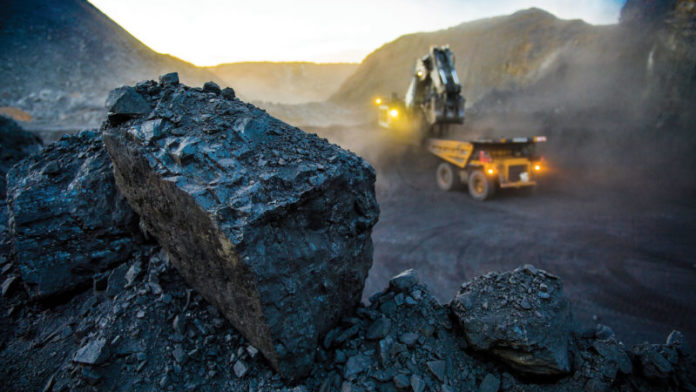
ANGLO American conservatism with regard to mineral resources had created the incorrect impression Thungela Resources had a limited life of mine, the group said.
Thungela Resources will be created from the demerger of Anglo’s South African thermal coal assets from Anglo Coal. The company, which will start trading in Johannesburg and London on June 7, will have July Ndlovu as CEO. Ndlovu is the current CEO of Anglo Coal.
“The Anglo American conservatism in reserves versus the resource is part of the equation, so July and the team have inherited a good reserve and they can see the potential in converting those resources to additional reserves,” said Mark Cutifani, CEO of Anglo in an interview on April 8.
“I think that an important point to make is against some of the players who are a little more cavalier on the resources side,” Cutifani added without naming thermal coal rivals where this may be the case. “July has got lots of good ideas that he’s going to drive through,” he said.
Cutifani was commenting after the group announced it would seek shareholder approval for the proposed demerger on May 5 in which Anglo shareholders are to receive one Thungela share for every 10 Anglo American shares held.
Thungela will have production of about 16 million tons of thermal coal annually, but with a life of mine of about 12.5 years compared to an average life of mine in the Anglo group of about 25 years. This has raised questions about its ability to extend its mines.
Thungela said it would seek out short payback, low capital intensity growth projects once it had bedded itself down as an independent company – taking a period of about three years.
In addition to having “significantly more resource and reserves than we currently project”, Thungela had established infrastructure and access to export and domestic markets through a marketing arrangement with Anglo American, said Ndlovu. “As we educate the market about how we think about the life of our assets that concern will become less.
“What they are judged against is our proud history in Anglo in that it operates long-life resources. If they have not got that, then they are wrong given our history. But I am absolutely confident we have got the resource base to support mines,” said Ndlovu.
METALLURGICAL COAL
The demerger is part of Anglo American’s plans to be carbon neutral by 2040. It also intended to sell its one third stake in Colombia’s Cerrejon mine which it holds with BHP and Glencore. Glencore may potentially become a buyer.
About a quarter of the group’s Scope 3 emissions were from thermal coal production compared to 13% of Scope 3 emissions in metallurgical coal (met coal) – a mineral that Cutifani said Anglo had no intention of selling.
“Met coal is an absolute necessity in producing steel as it stands today and anybody who says they should be getting out of met coal needs to have their heads read,” he said.
“Steel is key in the decarbonisation of the world’s economy, and until we have new technical solutions met coal is critical. Over time that will obviously change, but certainly through to mid-2030s, and probably to 2040, it remains important.”
“If we were to run our assets through to that time that’s probably a good place to be. Sophisticated investors understand the differences between the two and I think most of our investors are sophisticated.”











